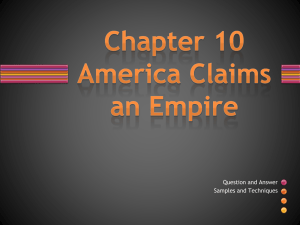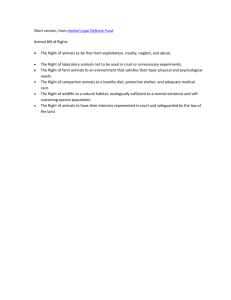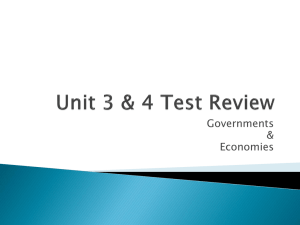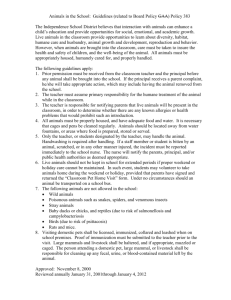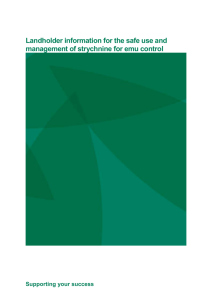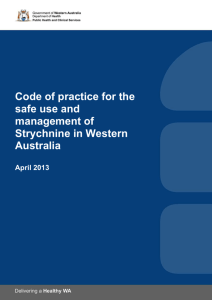The Aniplant Project
advertisement
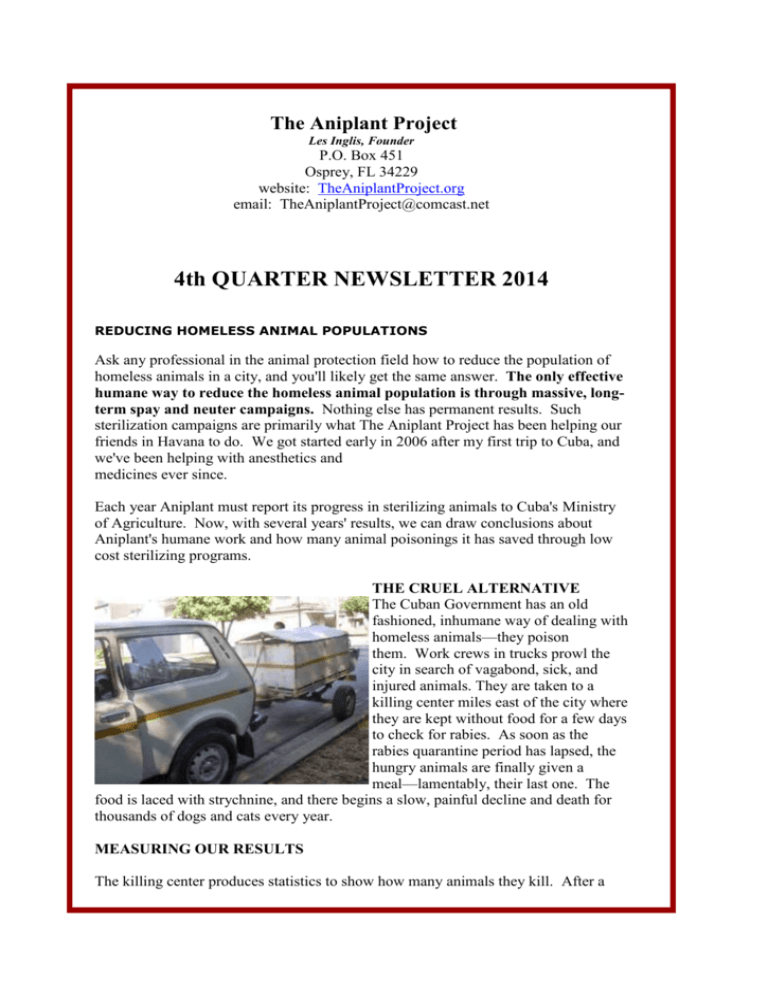
The Aniplant Project Les Inglis, Founder P.O. Box 451 Osprey, FL 34229 website: TheAniplantProject.org email: TheAniplantProject@comcast.net 4th QUARTER NEWSLETTER 2014 REDUCING HOMELESS ANIMAL POPULATIONS Ask any professional in the animal protection field how to reduce the population of homeless animals in a city, and you'll likely get the same answer. The only effective humane way to reduce the homeless animal population is through massive, longterm spay and neuter campaigns. Nothing else has permanent results. Such sterilization campaigns are primarily what The Aniplant Project has been helping our friends in Havana to do. We got started early in 2006 after my first trip to Cuba, and we've been helping with anesthetics and medicines ever since. Each year Aniplant must report its progress in sterilizing animals to Cuba's Ministry of Agriculture. Now, with several years' results, we can draw conclusions about Aniplant's humane work and how many animal poisonings it has saved through low cost sterilizing programs. THE CRUEL ALTERNATIVE The Cuban Government has an old fashioned, inhumane way of dealing with homeless animals—they poison them. Work crews in trucks prowl the city in search of vagabond, sick, and injured animals. They are taken to a killing center miles east of the city where they are kept without food for a few days to check for rabies. As soon as the rabies quarantine period has lapsed, the hungry animals are finally given a meal—lamentably, their last one. The food is laced with strychnine, and there begins a slow, painful decline and death for thousands of dogs and cats every year. MEASURING OUR RESULTS The killing center produces statistics to show how many animals they kill. After a year of asking we finally got some general information. We were told that in the 1990's the average number of killings was 13,000 to 15,000 per year. Today, that nUmber (the kill rate) has fallen to an average of 9600 per year. If we take 14,000 as the 1990's rate, it is fair to credit Aniplant's saving animals from cruel poisonings with a rate of 4400 animals a year—or a 31% reduction in killings. Those saved animals were never born, but result in a real reduction in animal suffering. AN EYE TOWARD THE FUTURE Nora Garcia, Aniplant's President, is talking with those who control the killing center to urge the use of humane euthanasia drugs in place of strychnine. There are resistances to change and major cost issues. No one now can know if that will happen, but it's an effort worth making. Unless or until Cuba's procedures are modernized and made humane, the best hope the animals have is continued high numbers of sterilizations. WHERE YOU FIT IN You, the friends and supporters of The Aniplant Project, can take a bow for the very real improvement we've made in the lives of Cuban animals. The sterilizations accomplished since 2006 are the central reason for this improvement. Those 4400 animals avoiding poisoning this year are repeated every year so long as we can continue our massive sterilization programs. This is real animal suffering stopped because of you. OUR ANNUAL FUNDRAISING APPEAL At this time of year we make our yearly appeal to you, our supporters, for donations. Your gift to TAP is one of the biggest humane bargains you'll find. In Cuba, they do the hard work—educating the public, advertising the campaigns, conducting the sterilizing sessions which move through Havana's neighborhoods, doing the vet work, etc. Here, all we have to do is support them. Won't you please make a donation to TAP so we can continue helping Cuba's animals? They deserve our efforts to give them decent lives and to militate against cruel extermination methods. For Cuba's animals, Les Inglis, Founder Contributions can also be mailed to: The Aniplant Project P.O. Box 451 Osprey, FL 34229 The Aniplant Project, Inc. is a not-for-profit corporation registered in the State of Florida. All contributions are tax deductible to the full extent of the law under IRS Code 501(c)(3) - ID# 272345012. A copy of our official registration and financial information may be obtained from the Division of Consumer Services by calling toll-free 1-800-435-7352 within the State of Florida, or 850488-2221. Registration does not imply endorsement, approval or recommendation by the State. TAP's registration number is CH32635. All fund-raising is done in-house.



